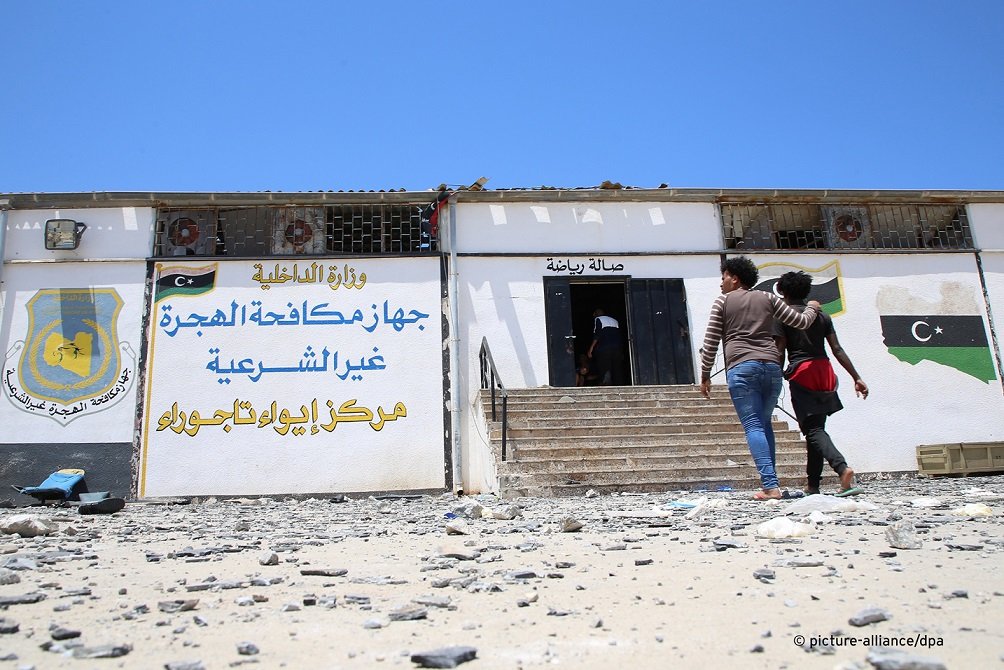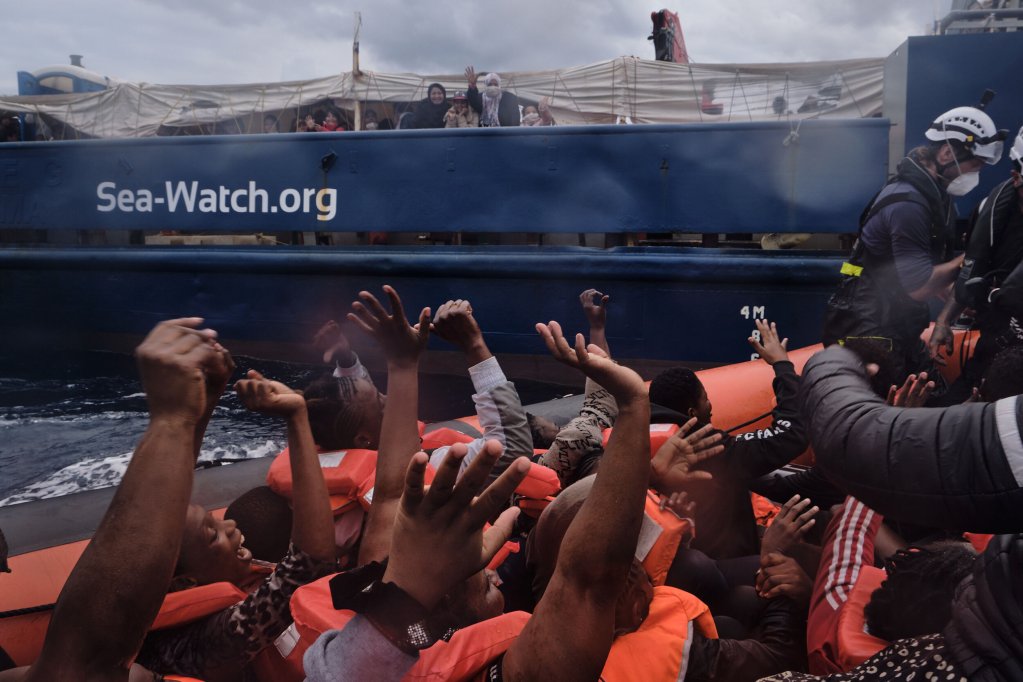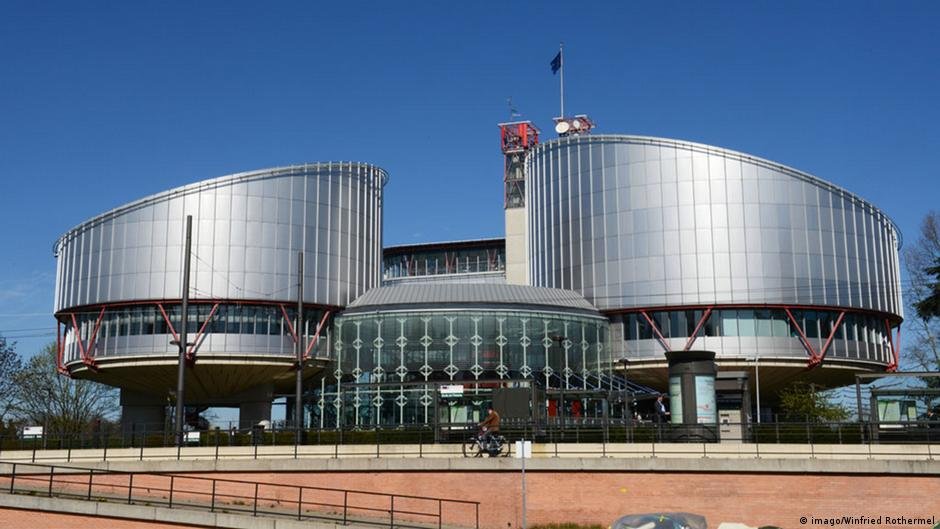The European Court of Human Rights has thrown out a case in which Italy's Maritime Rescue Coordination Center (MRCC) had been accused of indirectly engaging in pushbacks at sea by empowering Libyan authorities to save migrants and take them back.
The European Court of Human Rights (ECHR) ruled that Italian authorities had not acted illegally in a complex case dating back to November 06, 2017, when the MRCC had tasked the Libyan coast guard with rescuing migrants shipwrecked at sea and then take them back to Libyan soil.
The case in question involved the rescue of 150 people from a rubber dinghy, which had left Libya a few days earlier. Twenty people had died during the rescue mission led by the Libyan authorities, including several children, after the migrant boat had run into trouble at sea.
The 17 plaintiffs in the case, who all were survivors of the shipwreck, had alleged that these deaths could have been prevented if Italian authorities had not devolved major decisions to Libyan officials at sea.
They also stressed that the MRCC was subsequently also responsible for placing the rescuees at risk of ill-treatment by allowing the Libyan rescue ship to take charge of the rescue mission in the first place.
Around 45 survivors on board the Libyan rescue ship later testified that they had been taken to the infamous Tajoura Detention Center in Tripoli where they said they were beaten and abused.
Read Also'Make the voices of migrants in Libyan prisons heard', asks minor rescued in Mediterranean
ECHR: Italy had 'no control' over events
Judges of the Strasbourg court however threw out evidence that had been submitted prior to the hearings, saying there was no factual link between the events that took place at sea that night and any Italian command chain that could have changed the outcome of the rescue mission and subsequent events.
The ECHR said that Italy didn't have "effective control" over any of the series of events that the plaintiffs had sued for.
"[T]he mere fact that the search and rescue procedure had been initiated by the Rome MRCC could not, in the Court's view, trigger an extraterritorial jurisdictional link between the applicants and the Italian State," the decision read.

The ruling also specified that Italy's coast guard had contacted all available ships in the vicinity to rush to the rescue, while duly informing the Libyan authorities of the incident since the migrants' boat was located in the Libyan search-and-rescue (SAR) zone at the time of the shipwreck.
The judges said the fact that a Libyan vessel was the first at the scene was therefore coincidental, highlighting that the privately operated Sea-Watch 3 rescue ship had also reached the area soon after, and had rescued some of the migrants later on.
Read AlsoBodies of three migrant children wash ashore in Libya
Italy not accountable for conditions at Libyan detention centers
The plaintiffs had also claimed that the crew of the Libyan ship did not act in a skilful manner during the rescue itself, alleging among other things that the waves created by the Libyan rescue ship had directly resulted in the deaths of several migrants.
They also alleged that the crew mistreated individuals after saving them, using verbal threats as well as physical violence against some of them, linking this also to the fact that some were later on also abused at the Tajoura Detention Center.
The court, however, also dismissed that aspect of the case, saying that despite Italy's financial support of the Libyan coast guard and other authorities, Italian officials had no control over the actions of the crew of the Libyan vessel — especially on account of the fact that at the time of the rescue operation, the migrant dinghy was indeed situated in the Libyan SAR zone, saying that the crew of the Libyan vessel Ras Jadir had therefore acted independently.

Read AlsoUN demands independent probe after over 80 bodies found in Libya's capital
Legal distinction between 'military' and 'logistical' support
In earlier rulings of a similar nature, the ECHR had sided with plaintiffs who had taken Italian authorities to court, as it found sufficient evidence in those cases for activities akin to pushbacks at sea actually being carried out, during which Italian officials were found to also have had a certain level of involvement.
Even Italian courts have ruled against Italian authorities before, in which migrants had taken officials to court over accusations of pushbacks.

Read AlsoItaly responsible for migrant pushback, Rome court rules
But in this instance, the Strasbourg court said it did not find comparable evidence; the plaintiffs had alleged that in the current case, Italy should also have been held accountable "by proxy" for collaborating so closely with the Libyan vessel in the first place.
The plaintiffs had also emphasized that Italy for years has been supplying Libya with funding, training and actual vessels as part of a bilateral agreement between the two countries to help limit the number of migrants trying to cross the Mediterranean.
However, the ECHR equally dismissed this, saying that legally it had to make a particular distinction between certain cases.
It highlighted that a key distinction between such rulings was whether Italy was found to provide overall "military, financial and political support" to Libya or whether Italian authorities only gave "financial and logistical support" in managing irregular migration to official Libyan bodies.
Since it has no jurisdiction over Libya, the court made no comments over the quality of the actions taken by Libyan officials in the case.
Read AlsoAmnesty criticises Italian-Libyan relations
with dpa, AP
